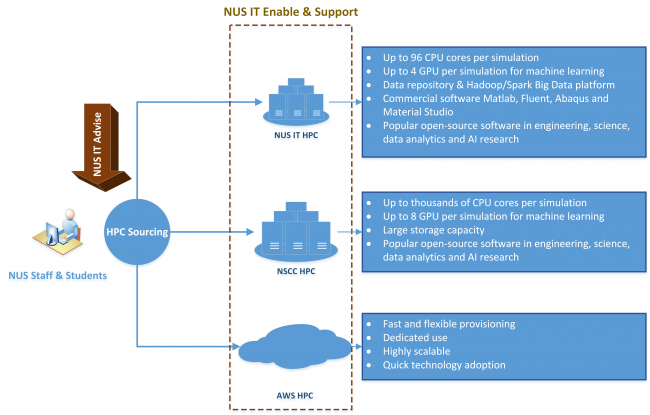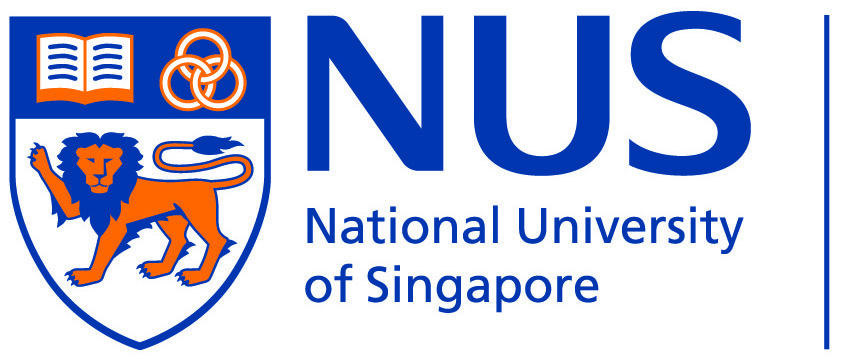HPC OPTIONS FOR RESEARCH
With the recent partnership confirmation between NUS and AWS, researchers can now have a more extensive range of High Performance Computing (HPC) options to consider for their research computing needs. We will review some of these options.
The technology options
HPC uses parallel computing technologies and techniques (hardware & software) to accelerate research computation.
The common parallel computing hardware technologies used today include multi-core CPU, many-core accelerators such as GPU and the HPC cluster. HPC applications that are parallel-computation enabled within a CPU server are mostly based on techniques such as multi-threading or OpenMP programming.
Those that are parallel-computation enabled over a cluster of servers are generally based on MPI message passing technique. For GPU parallel computation, the common techniques are OpenCL and CUDA. In data analytics, Spark is a popular framework for parallel data processing.
At NUS IT, we support all the above technologies, techniques and framework with the combination of HPC and Hadoop/Spark cluster resources developed in-house, HPC Cloud resources from AWS, and grand challenge class resources from the National Supercomputing Centre (NSCC).
The scalability options
At NUS IT, you can run small and medium size simulations using up to 96 CPU cores per jobs. You can also access 4-volta-GPU servers for machine learning and deep learning research.
At NSCC, you can access thousands of CPU cores for large-scale simulations. You also have access to the 8-volta-GPU servers for large-scale machine/deep learning (ML/DL) training. As part of NUS-NSCC partnership, NUS IT is providing the frontend support to assist you in your application migration and scaling. For example, ML/DL models can be developed at NUS IT system before migrating to NSCC system for large-scale analytics using container technology.
The agility options
No on-premises resource can be provisioned as fast and as flexible as the Cloud. If you need dedicated resources to speed up your research or need to provision resources quickly for ad-hoc testing or just to explore new technologies, Cloud is a good option to consider. With the partnership between NUS and AWS established recently, you can now subscribe the cloud resources with 5% discount.
The HPC Combo
Depending on your project requirements, it may be more productive or more cost-effective for you to tap on different resources at different stages of your project. For example, you may do application development and debugging at NUS IT system before subscribing the Cloud resources to save cost. You may also develop and test your simulation at NUS IT system before scaling it up to execute at NSCC to minimise queueing time. Here is the consolidated view of the various options for easier reference.

For HPC consultation and support, please contact us using the A.S.K. portal.

